
 Flash News
Flash News
Arrests of "Bankers Petrolium", Prosecution provides details: Exported and sold 532 billion lek of oil, caused millions of euros in damage to the state
Ndahet nga jeta tragjikisht në moshën 28-vjeçare ylli i Liverpool, Diogo Jota
Posta e mëngjesit/ Me 2 rreshta: Çfarë pati rëndësi dje në Shqipëri
Ceno Klosi with over 800 stolen votes, Balluku finds the reason is the tiredness of the counters
"Fast & Furious" in the former Block, police chase an Audi Q8, 4 cars collide

Alfred Lela
The complex of Kosovars and other Albanian peoples in the Balkans with Enver Hoxha was once justified during the 1970s- 80s and also in the early 90s, when Albania opened up, but the terror in Yugoslavia increased.
In this complex, you could find the longing of Albanians beyond Londonian Albania for a homeland to be proud of, a country that replaced their lost homeland, a pater familias that could be harsh, so to speak. Still, it belonged to 'our' language and blood, not to that of Yugoslavia.
This role was played by Enver Hoxha, who was forgiven for selling Kosova several times in the interests of his power but worshiped for his empty propaganda statements, in which he entered into an imaginary war with Belgrade.
Although several decades have passed and historical documentation has already proven the dictator's 'love' for Kosova, there are still islands of veneration for him in Kosova, the Diaspora, or elsewhere. Psychologically, such an instinctive attachment to emissaries of evil is universal. There are still Hitlerites in Germany.
The Albanian world, namely that of the Balkans that is repeated in our communities in the Diaspora, has not come out of such a coma.
A few weeks ago, Behgjet Pacolli, a Kosovar politician with several decades of activity in the Diaspora - as if he had come out of the 80's eulogy for Enver Hoxha - showered Edi Rama with a flood of praise. Despite Rama's record, his temptation to bypass Kosovo and its government, to create a connection with Belgrade through the "Open Balkans," the disregard - if not contempt for the Kosovar leadership - insert here Rama's consideration for Pacolli as 'king of kitsch, for the businessman transformed into a senior politician and part of the governing elites of Kosovo, the Prime Minister of Albania was the "best of all time."
Let's assume this is accurate, but with Rama still alive, it seems more like a calculation of interest or a personal point of view than a historical assessment. More than that, with this emphasis, Pacolli does in Albania what Rama does in Kosova, which is the uninvited entry into the political balances of Tirana. Kosovar Albanians, let alone the politicians who change places in the government, should be more cautious in their hyperbolism about the "legendary leaders" of this side of the border. Also, such attitudes have been refuted by history once in the case of Hoxha. Enveriada cannot continue in conditions of freedom; otherwise, it expresses a serf's spirit.
Just as public and out of place, such intervention was made by compatriots in the Diaspora two days ago in Staten Island through the "Ulqini Association." An organization with such a name and focus, the community of Ulcinians and Albanian malësors in Montenegro, is within its right to call and host Mr. Rama for any topic related to the nation, from books, language, schools, the opportunity for the Albanian consulate in New York to help the Albanians of Montenegro, and so on. However, when the topic is the upcoming parliamentary elections in Albania and the vote of the Diaspora, and when the gathering wears red and black but has a 'socialist' agenda, we are in open violation of good compatriotism. It allows an honorable community like that of Albanians of Montenegro, patriotic and wise, to be used as an electoral stunt.
It confuses the nation's flag and symbols with a transitory ruler of Tirana and dresses the second with the first, as if Rama's hyperbole was not strung enough in Albania. The Albanians of Kosova and the other three Albanian-speaking countries in the Balkans, or those in the Diaspora, must kill the inner Hoxha.
History has spoken about the dictator's good and bad deeds. The repetition of the Hoxha syndrome with Edi Rama, in favorable conditions for freedom, information, and national balances, does not help Albania, but only the prime minister's political power.
If nothing else, the fact that even in the countries whose citizenship the Albanians of the Diaspora hold, Montenegro, Kosovo, etc., elections are held with acceptable standards, while in Edi's Albania, not at all, should put everyone in the position of those who value the other's freedom to choose as their own. When the other is a fellow countryman, any double standard is criminal.
Ultimately, Edi and Enver can be adored, but always consider those who shoulder their burden.
Comparisons are lame in any case, but in Tirana, among the right-wing nationalist parties, neither Tito nor Slobodan has been well-spoken of.
For Dushan [Mugosha] and [Alexander] Vucic, yes, but always on the side of the party of Enver and Edi.
Latest news


A unique summer season, full of rhythm and rewards for Credins bank customers!
2025-07-03 12:12:20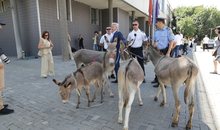

Fire situation in the country, 29 fires reported in 24 hours
2025-07-03 12:00:04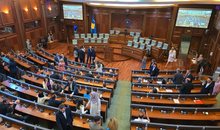
The constitution of the Kosovo Assembly fails for the 41st time
2025-07-03 11:59:57
The gendering of politics
2025-07-03 11:48:36
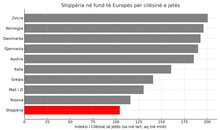
The price we pay after the "elections"
2025-07-03 11:25:39
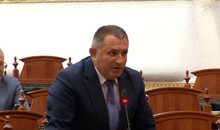
Xhafa: The fire at the Elbasan landfill was deliberately lit to destroy evidence
2025-07-03 11:08:43

The 3 zodiac signs that will have financial growth during July
2025-07-03 10:48:01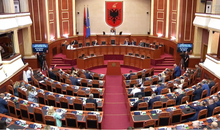
Democratic MP talks about the incinerator, Spiropali turns off her microphone
2025-07-03 10:39:24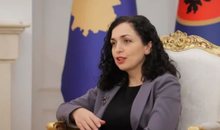

Ndahet nga jeta tragjikisht në moshën 28-vjeçare ylli i Liverpool, Diogo Jota
2025-07-03 10:21:03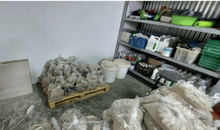
Cocaine trafficking network in Greece, including Albanians, uncovered
2025-07-03 10:10:12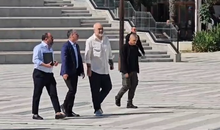
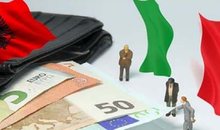
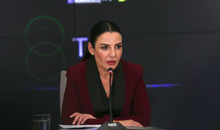
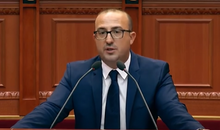
Korreshi: Election manipulation began long before the voting date
2025-07-03 09:39:13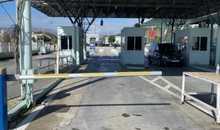
Arrest of Greek customs officer 'paralyzes' vehicle traffic at Qafë Botë
2025-07-03 09:28:41
After Tirana and Fier, the boxes are opened in Durrës today
2025-07-03 09:21:10
Enea Mihaj transfers to the USA, will play as an opponent of Messi and Uzun
2025-07-03 09:10:04

Foreign exchange, the rate at which foreign currencies are sold and bought
2025-07-03 08:53:50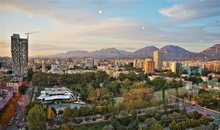
Index, Albania has the worst quality of life in Europe
2025-07-03 08:48:10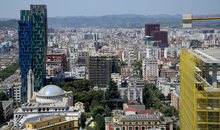
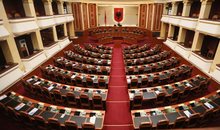
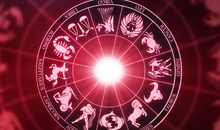
Horoscope, what do the stars have in store for you today?
2025-07-03 08:17:05
Clear weather and high temperatures, here's the forecast for this Thursday
2025-07-03 08:00:37
Posta e mëngjesit/ Me 2 rreshta: Çfarë pati rëndësi dje në Shqipëri
2025-07-03 07:46:48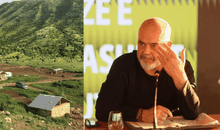




Lufta në Gaza/ Pse Netanyahu do vetëm një armëpushim 60-ditor, jo të përhershëm?
2025-07-02 21:56:08
US suspends some military aid to Ukraine
2025-07-02 21:40:55



Methadone shortage, users return to heroin: We steal to buy it
2025-07-02 20:57:35
Government enters oil market, Rama: New price for consumers
2025-07-02 20:43:30
WHO calls for 50% price hike for tobacco, alcohol and sugary drinks
2025-07-02 20:41:53







Israel agrees to 60-day ceasefire in Gaza, but many unanswered questions remain
2025-07-02 18:35:27
The weather in Germany is going "crazy", temperatures reach 40°C
2025-07-02 18:22:21

"Fast & Furious" in the former Block, police chase an Audi Q8, 4 cars collide
2025-07-02 17:59:25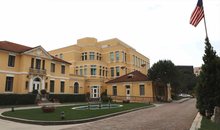
"Birth on a tourist visa? US Embassy warns Albanians: This is prohibited!"
2025-07-02 17:48:16
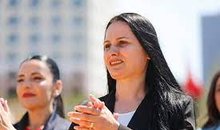

BIRN: Fier recount reveals vote trafficking within open political party lists
2025-07-02 16:57:19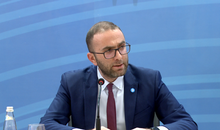

CEO and former director of 'Bankers Petroleum' arrested in Fier
2025-07-02 16:40:42
Car hits two tourists on a motorcycle in Fushe Arrëz, one of them dies
2025-07-02 16:33:23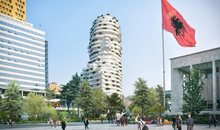



Fire at the Elbasan Incinerator Landfill, Prosecution Launches Investigations
2025-07-02 15:34:54
What you need to know if you travel to a country with active volcanoes
2025-07-02 15:33:03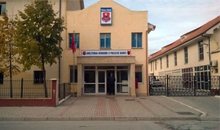



EU proposes 90% reduction in greenhouse gases by 2040
2025-07-02 14:50:23
Europe is burning from the heat / Italy and France are on maximum alert
2025-07-02 14:36:52
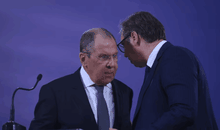
Moscow's contradictory statements: Is the friendship with Vučić breaking down?
2025-07-02 14:21:05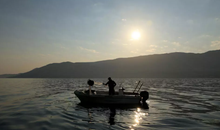
'I lost my battle': Sea warming is killing fishing in Albania
2025-07-02 14:08:35
Sekretet kimike që ndihmojnë në mbajtjen e mjaltit të freskët për kaq gjatë
2025-07-02 14:01:26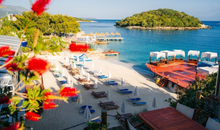
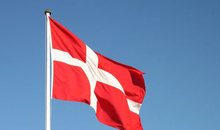
Denmark makes historic decision to make military service mandatory for women
2025-07-02 13:44:33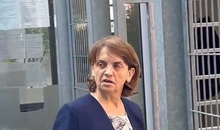
The appeal of the GJKKO leaves former judge Pajtime Fetahu in prison
2025-07-02 13:30:20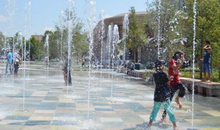
Productivity losses could reduce GDP by 1.3% as a result of extreme heat
2025-07-02 13:21:04
He abused his minor daughter, Zamir Meta is left in prison
2025-07-02 13:04:04

Waste burning in Elbasan, Alizoti: They are poisoning people and stealing money
2025-07-02 12:48:39
Civil disobedience continues in Serbia, dozens of people detained
2025-07-02 12:40:32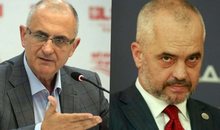
Rama's government was born under the sign of garbage and will end like this
2025-07-02 12:28:09
Water prices increase in the municipalities of the Elbasan region
2025-07-02 12:13:38
Civil disobedience continues in Serbia, what is happening in Belgrade?
2025-07-02 12:07:44
Serious accident in Thumanë, one dead, 3 injured
2025-07-02 11:54:42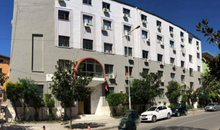
Durrës Court suspends the director of Pre-University Education from duty
2025-07-02 11:49:27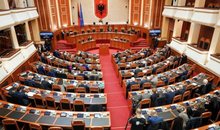
Plenary session on Thursday, what is expected to be discussed
2025-07-02 11:36:43
Europe is burning from heat waves/ What is the 'thermal dome' phenomenon?
2025-07-02 11:26:25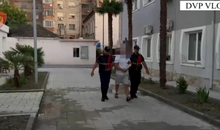
Wanted by Italy for murder, 45-year-old arrested in Vlora
2025-07-02 11:19:31
Fire situation, 28 fires reported in 24 hours, 2 still active
2025-07-02 11:13:20
"Buka" file, preliminary hearing for Ahmetaj postponed to July 17
2025-07-02 11:03:30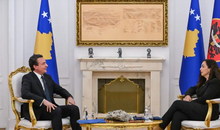
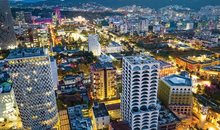

Baçi: Belinda Balluku and Ceno Klosi, the most dangerous "gangs" in Fier
2025-07-02 10:32:09
Zamir Meta, suspected of sexually abusing his daughter, arrives in court
2025-07-02 10:21:33

Trump: Israel has agreed to a 60-day ceasefire in Gaza
2025-07-02 10:01:55
